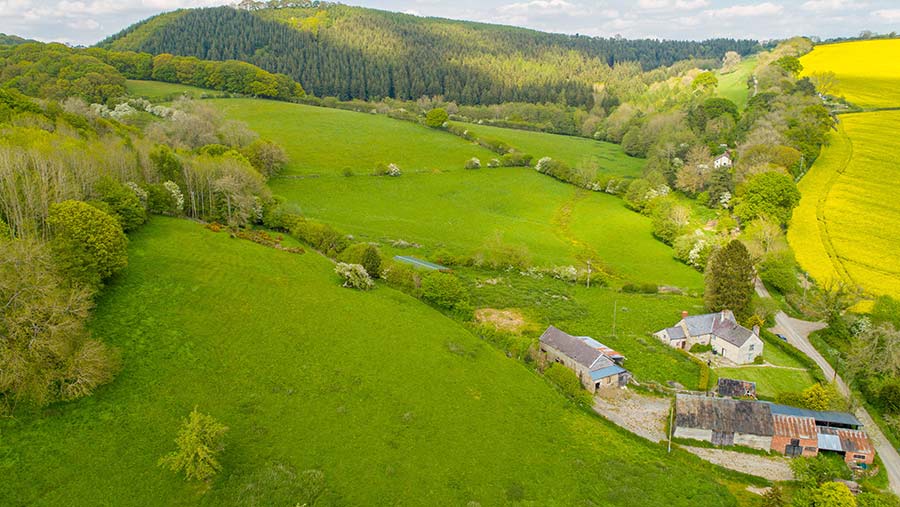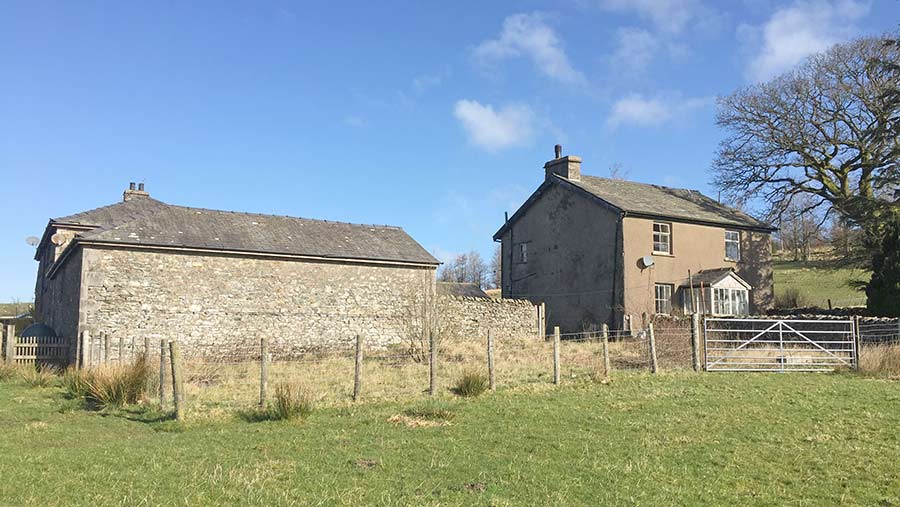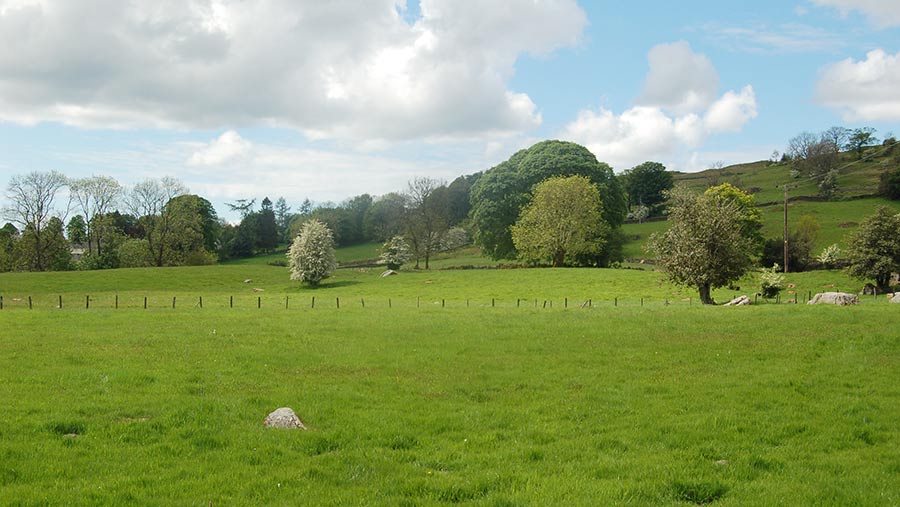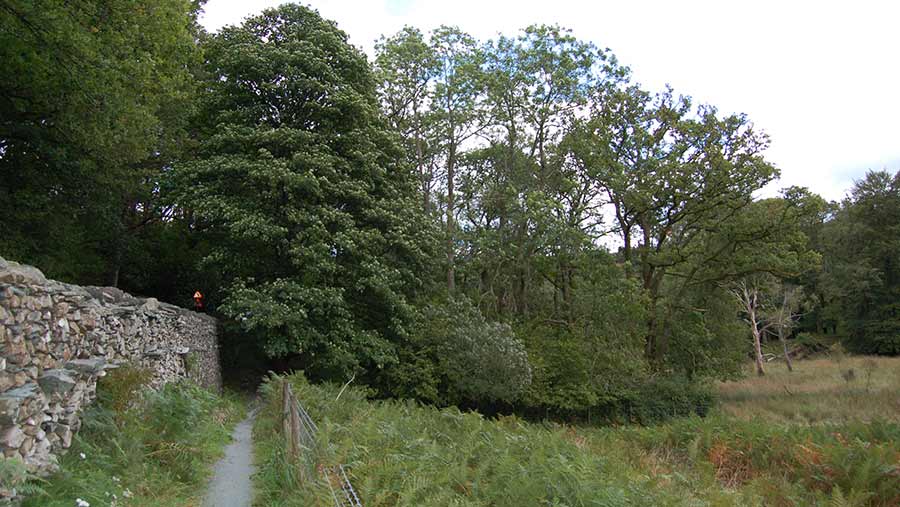Diverse range of land and farms at auction in England and Wales
 The Brookhouse © McCartneys
The Brookhouse © McCartneys A mix of land, property and woodland is set to go under the hammer in two upcoming summer auctions.
Agents say an auction can be an efficient and cost effective way of selling property, offering a high degree of certainty that a sale will be achieved on a set day, with a binding contract formed when the winning bid is approved.
Properties at auction are usually offered at a competitive reserve price and it is the most transparent method of sale.
See also: How to choose the right way to sell your farmland
Bidding can even be conducted from the comfort of your own home, with Fisher German launching an online property auction service in 2018.
Advice on buying and selling at auction
Whether buying or selling:
- Instruct a solicitor who is familiar with land sales and auction procedure
Buying:
- Inform the agent that you are interested from the outset. Occasionally properties are sold prior, or something changes, and if the agent is not aware of your interest you will not be kept updated.
- Prepare well. Inspect land, obtain legal pack, investigate planning, and arrange finance before the week of the auction.
- Set a limit and stick to it.
- Attend the auction in person, arrive in good time unaccompanied by young children and turn your mobile to silent.
Selling:
- Instruct your solicitor in good time in order to carry out local authority searches and prepare the legal pack.
- Get the guide price right: too high and you will receive little interest, too low and the phones will not stop – and it does not look very professional.
- If selling in lots where there is clear marriage value, offer a fixed-price option on lot 2 to the buyer of lot 1.
Source: Andrew Tuffin, rural partner, Symonds & Sampson
What’s coming to auction?
At H&H Michael CL Hodgson’s sale in Kendal on 21 June, woodland, pasture and a smallholding with development potential are on offer.
Mark Barrow, associate and chartered surveyor for the firm, said: “We are expecting there to be a keen interest from a range of buyers, including neighbouring farmers looking to extend their acreages and those looking for a lifestyle property to develop.”
Ecclerigg Hall Farm, near Carnforth, is being sold in two lots, with a total guide price of £220,000 to £280,000. Lot 1 is a three-bedroom house, outbuildings, stable and 0.25-acre paddock. Lot 2 is a 2.74-acre grazing paddock.

Ecclerigg Hall © H&H
The eight acres of pasture land at Broadgate, near Windermere, is being sold in two lots with an overall guide of £70,000 to £90,000.

Land at Broadgate © H&H
Land at Ealinghearth, within the Rusland Valley and Lake District National Park, is being sold in two lots. Lot 1 is a 1.5-acre paddock of productive grazing land with stables, at a guide price of £20,000 to £25,000.

Land at Ealinghearth © H&H
Lot 2, with a guide of £65,000 to £70,000, is 34 acres of low-lying grazing pasture with river frontage to the west of Rusland Pool.
A 4.5-acre block of woodland and grazing land between Crosthwaite and Crook is being sold as a whole with a guide price of £20,000 to £25,000.

Land between Crosthwaite and Crook © H&H
Just under an acre of woodland at Halfway House near Ambleside is guided at £3,000 to £5,000.

Woodland near Halfway House © H&H
Wales offering
McCartneys is selling The Brookhouse, near Presteigne, Powys, at public auction on 4 July, and says it could be a good opportunity for young farmers to get a foot on the agricultural property ladder.
It totals about 62 acres and is split into five lots.

The Brookhouse © McCartneys
Lot 1 – four-bedroom house and two large traditional buildings set in about five acres. Guide price: £350,000.
Lot 2 – 34 acres. This lot could be sold with lot 1 or separately as grazing land together with a 10-acre wood. Guide price: £170,000.
Lot 3 – two-acre roadside grazing/mowing field. Guide price: £18,000.
Lot 4 – 12.5 acres of pasture land, suitable for grazing or amenity purposes, with roadside access. Guide price: £50,000.
Lot 5 – roadside pasture land. Guide price £60,000.
Auctions remain popular
Ian Kitson, director of property auctions and valuations at Cheffins, says the firm’s auctions have continued to increase in popularity in recent years, with more properties being sold by auction and an ever-greater number of buyers coming to each sale.
If selling at auction, it’s important to make sure the circumstances are right, he says. Completion will normally take place 28 days after the auction, meaning the property will need to be vacated in this time.
Choose an auctioneer who knows the local market and will advertise your property to the widest audience. Liaise with them to set competitive guide and reserve prices.
If buying at auction, obtain a catalogue as early as possible and attend one of the specified viewing days. Remember that contracts are exchanged on the day of the auction and a 10% deposit will be required.
Following a successful purchase, it is recommended the property is insured from the date of auction. Make contact with your solicitor to check what they require before completion.
